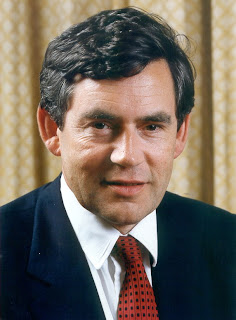Gordon Brown at the UN

I must say that I am impressed with Gordon Brown, the new Prime Minister of the United Kingdom. His speech today at the United Nations was particularly impressive as it focused, without the typical equivocation, on the need for the industrialized countries to live up to the promises made about the Millennium Development Goals. Here are some highlights from the speech: When one month ago I took office as Prime Minister, one of my first acts was to ask Ministers of the United Kingdom Government - from International Development and Foreign Office to Business and Trade, Treasury and the Environment - to report to me on what we must do to meet the world's Millennium Development Goals and to eradicate the great evils of our time: illiteracy, disease, poverty, environmental degradation and under-development. Earlier this month, the UN Secretary General launched the UN's 2007 progress report on the goals. He said there was a clear need for urgent and concerted action. Now one month la...







